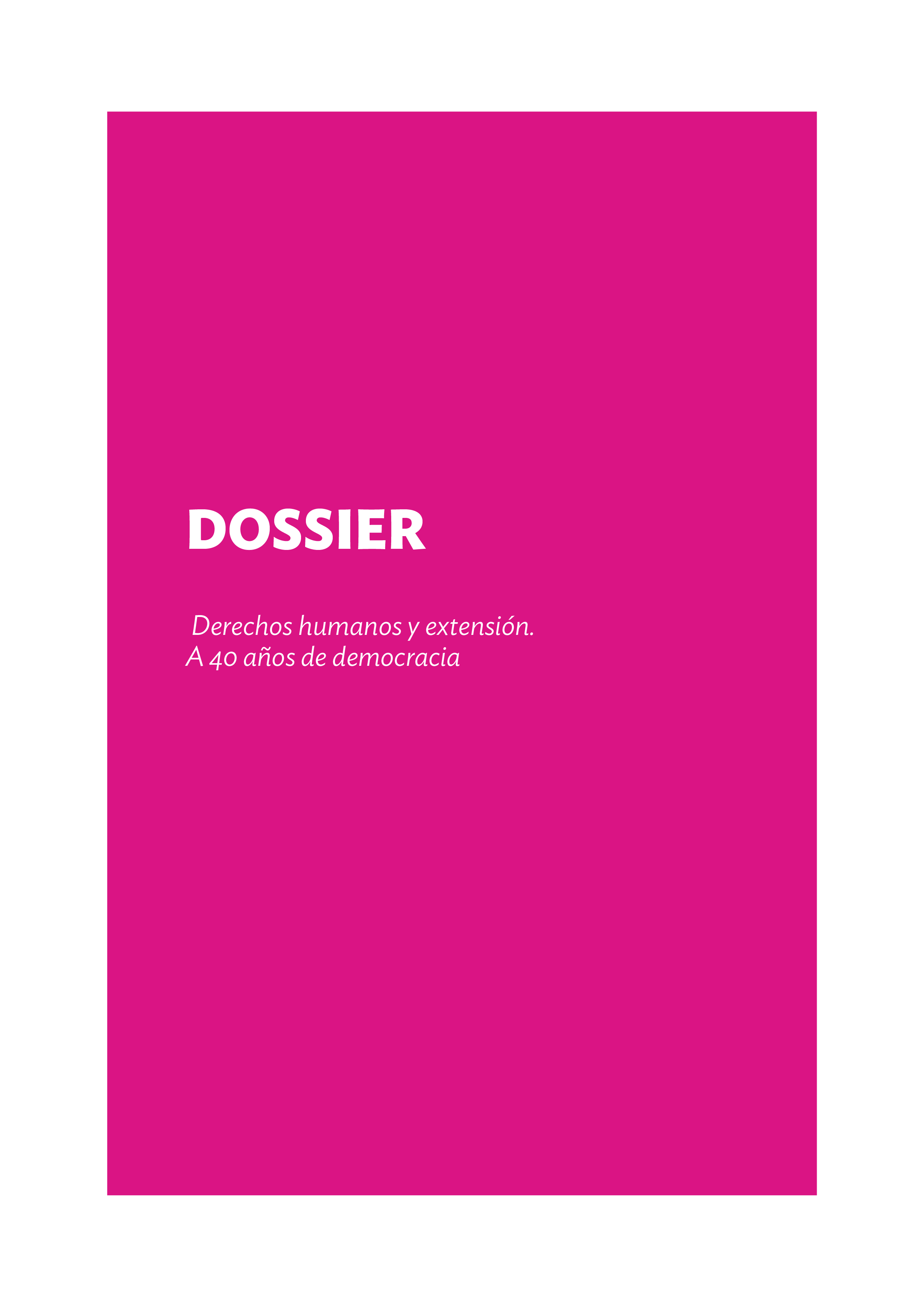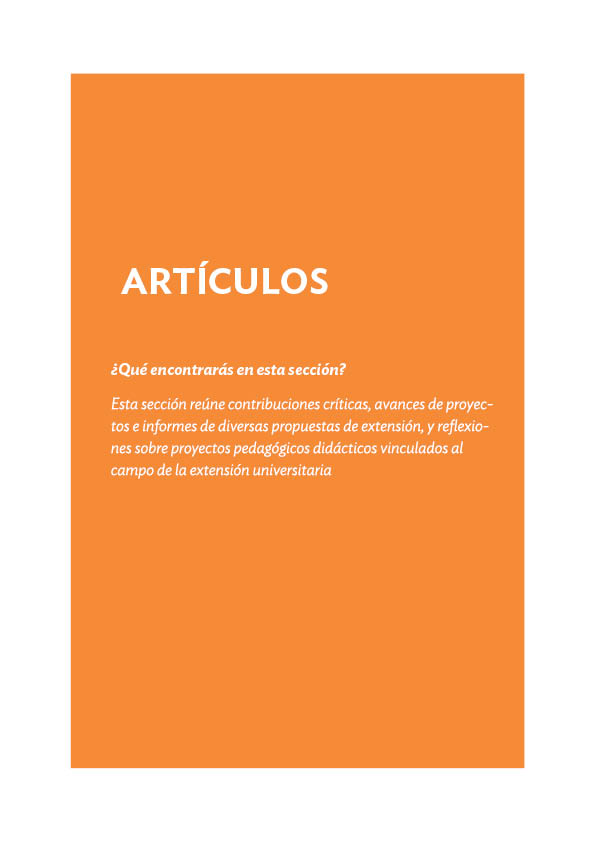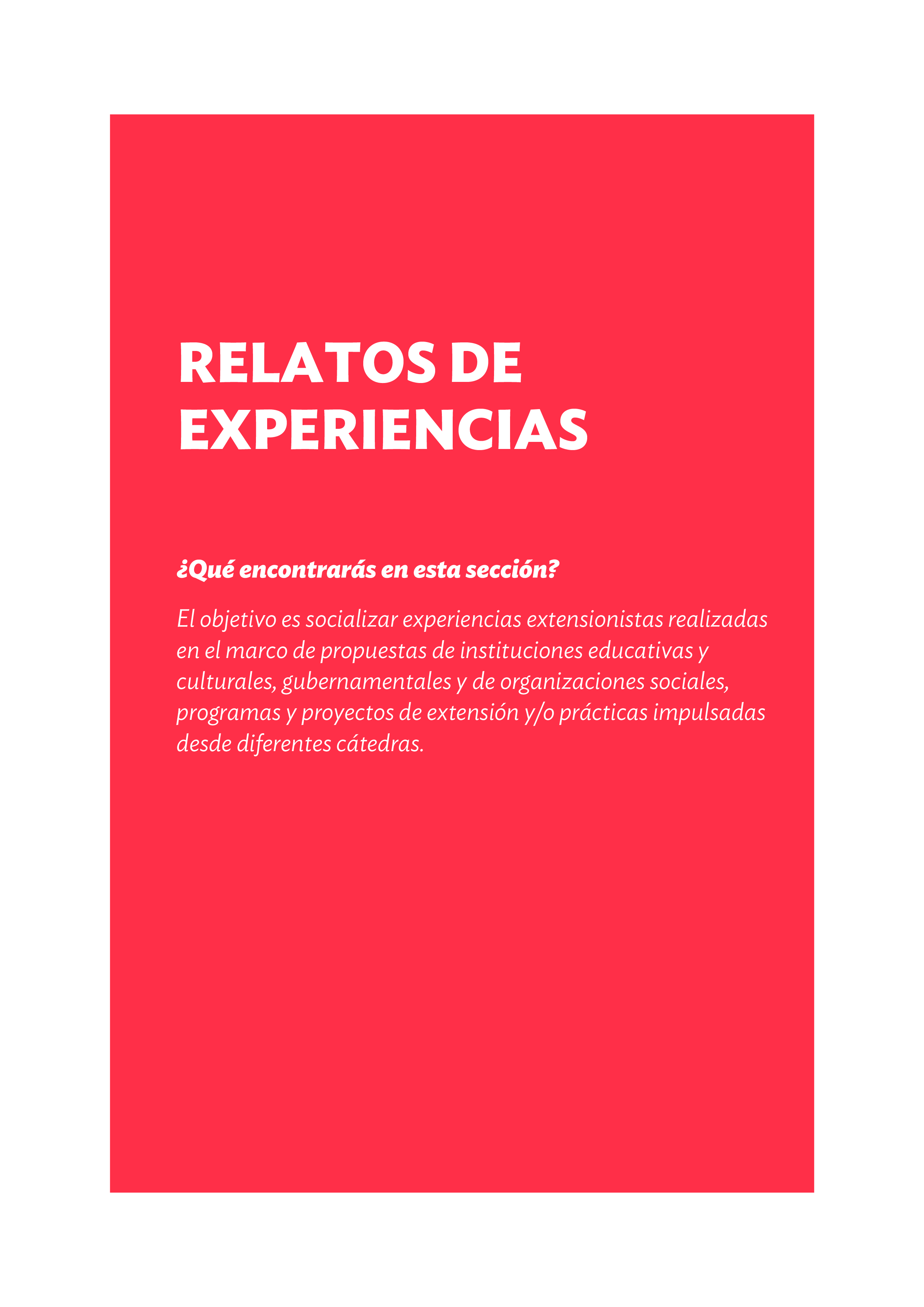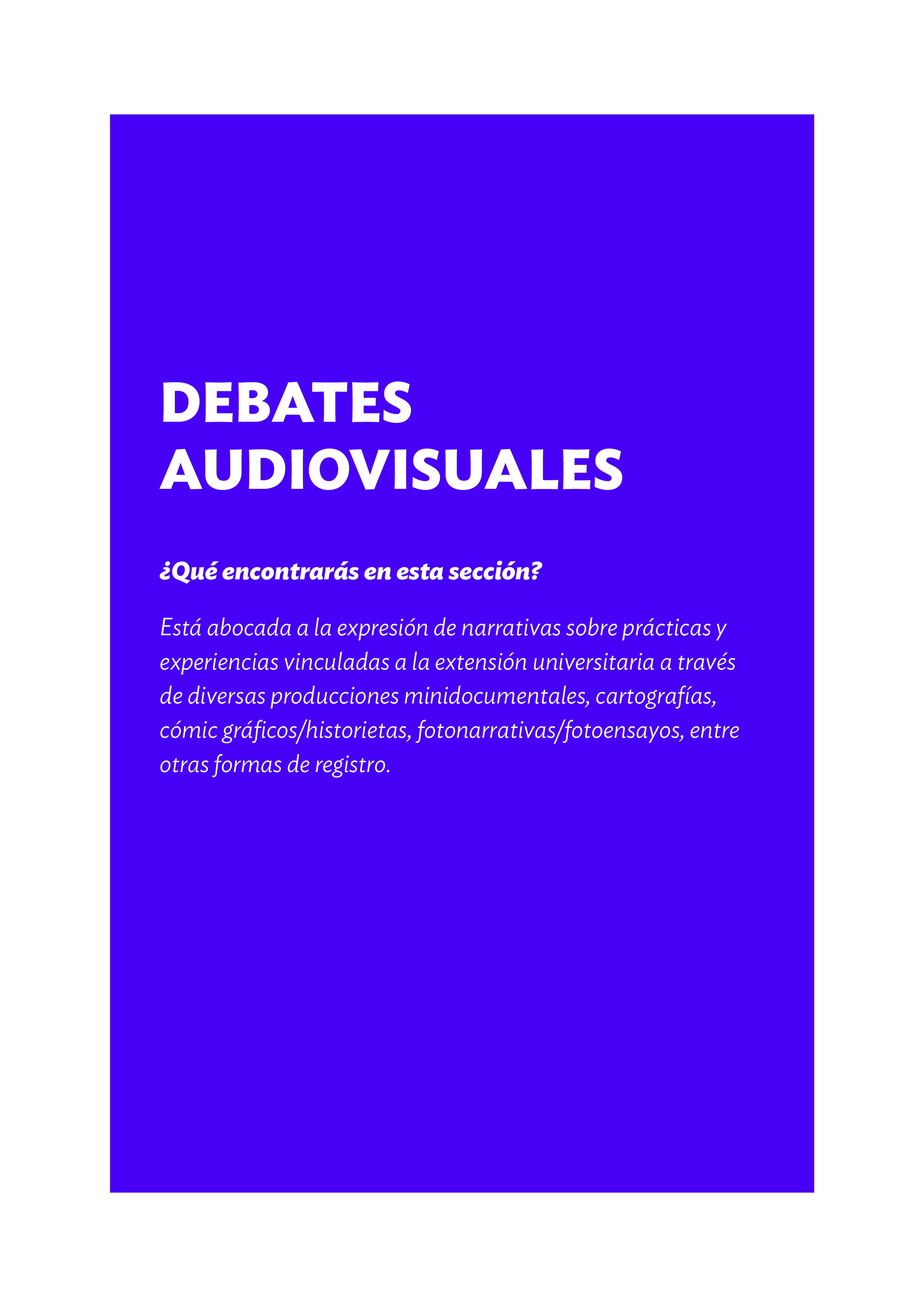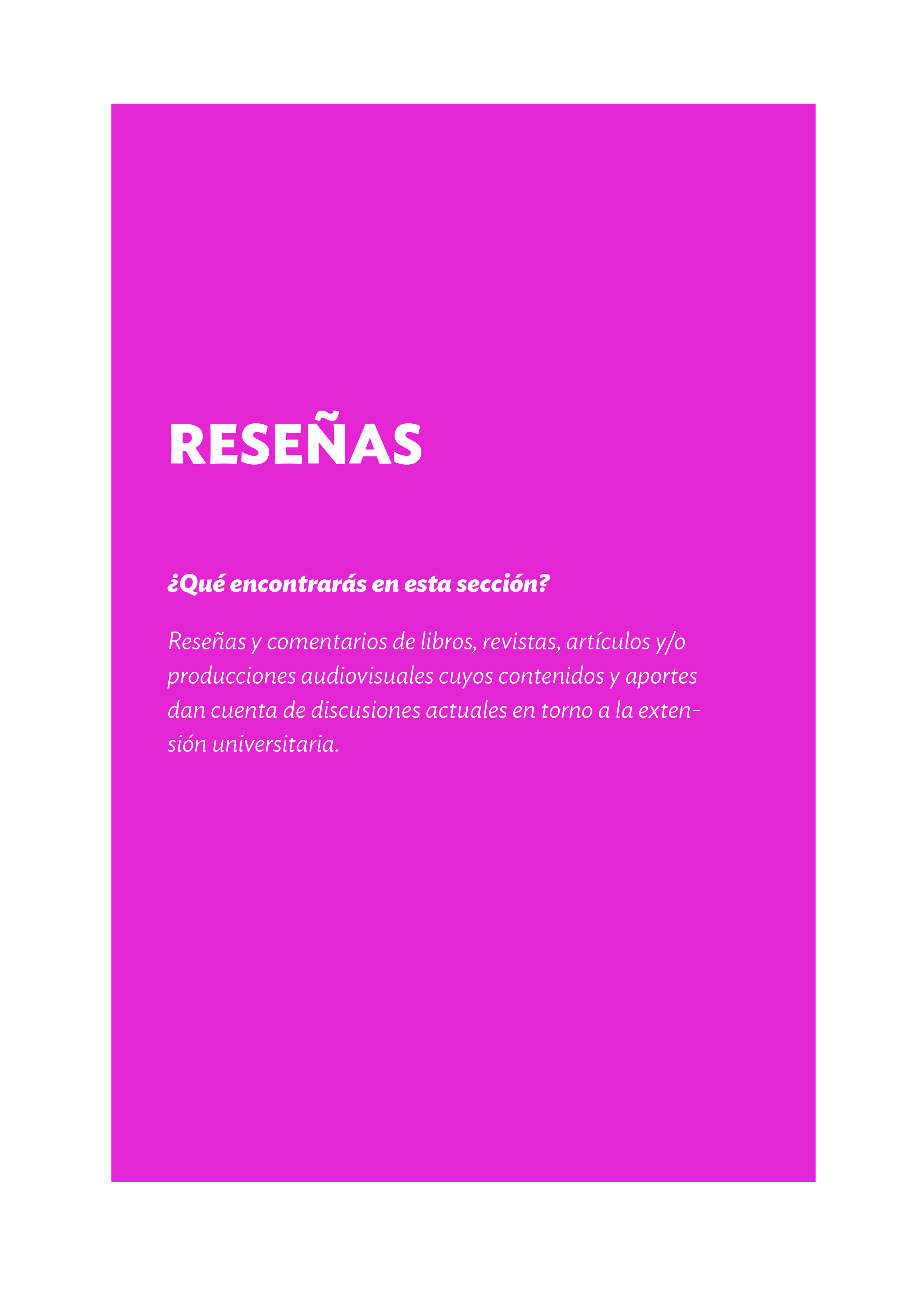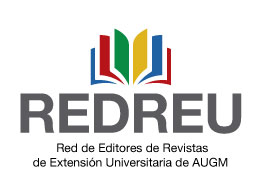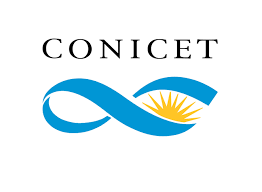Vol. 10 No. 16 (2023): Human rights and extension. 40 years of democracy
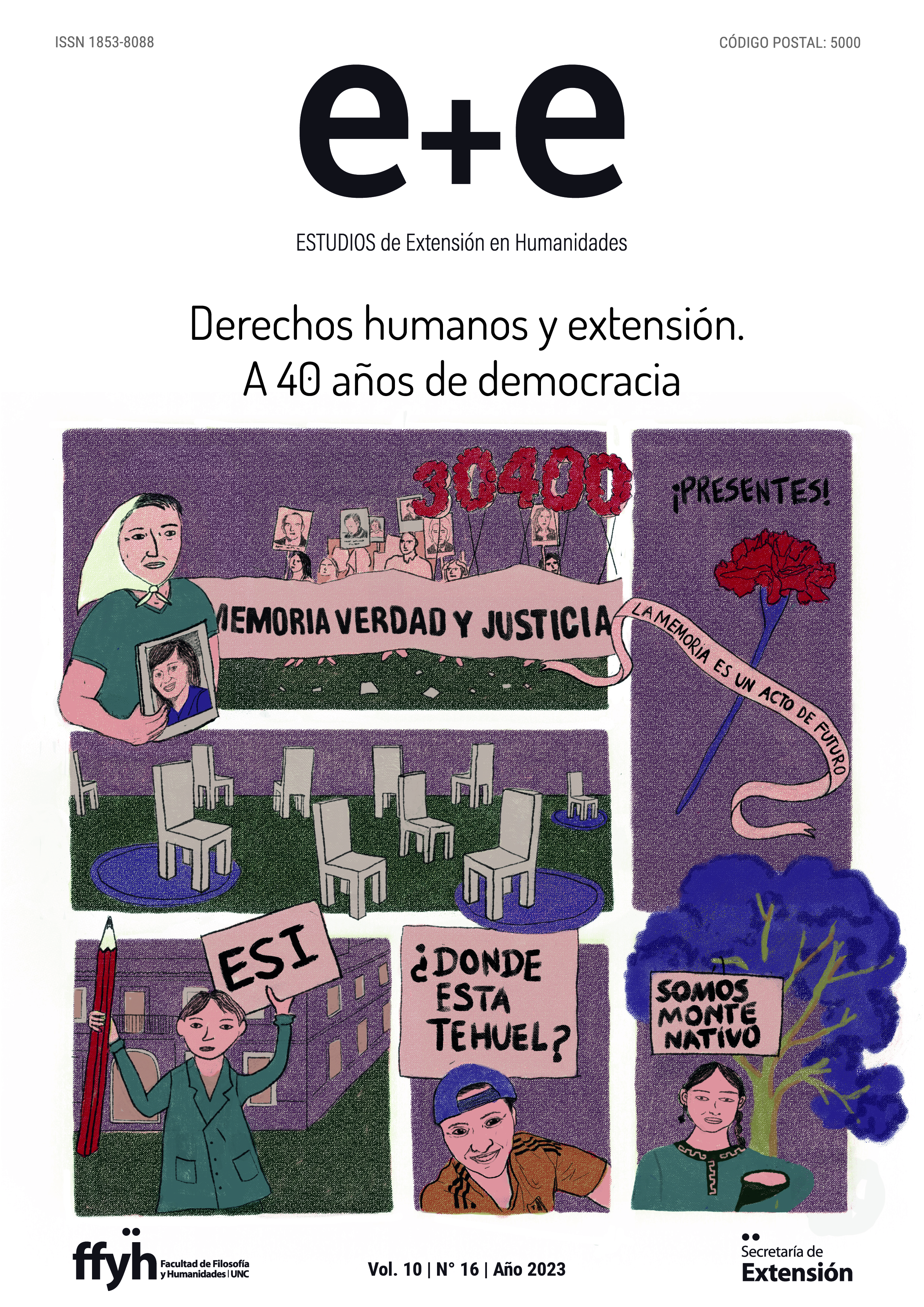
The main objective of this dossier is to interweave different university extension experiences from a human rights perspective, with emphasis on the commemoration of the 40th anniversary of the recovery of democracy in our country. The current political and social context requires rethinking strategies for the effective enforcement of rights, to combat new discourses that threaten the democratic system that cost us so much to conquer and to make visible the importance of collective construction in the realization of a truly inclusive society.
The history of the human rights movement, with its trajectories of struggles, achievements and disputes, shows that rights are not conquered once and forever, that there is no univocal way of naming, categorizing and establishing what is named when we speak of human rights if we do not take into account the genesis and transformation of this idea in a given time and social space. Human rights -as we understand them- are conditioned by the societies in which processes of recognition and violation of rights are developed, as well as spaces of resistance and remnants of humanity in the face of cruelty.
From our point of view, it is not enough for individuals to identify that they have rights, or for certain States to recognize the existence of rights; rather, human rights constitute life projects and subjectivities that do not develop in solitude, but are only possible through collective constructions. Hence, human rights have much to do with the politicization of life in common, through the construction of a life with others. That is to say, with subjects with the capacity for agency who delineate the contours of what it means to speak of human rights and what this expression contains or harbors. This process includes both consensus and disputes, advances and expansions, but also regressions.
In this sense, the struggles for the defense and expansion of rights are closely linked to the university commitment, from the political position in which critical extension approaches its university work. Both paradigms are not possible without the constant interlocution with others, with diverse collectives that nurture, stress and discuss the meanings of extension and human rights. Let us consider, for example, how it would be possible for the field of reflection and academic work to make the notion of human rights more complex if it does not take into account the dialogue and links with those who struggle daily in the arena of the (im)possible. In turn, both extension and work with a human rights approach must prioritize times and spaces that go beyond the demands of evaluation systems, that is to say that, in short, they liquefy individual demands.
In this key, we invite you to share extension experiences that work in articulation with the human rights movement; spaces for memory, territorial organizations; popular economy; indigenous communities; peasant communities; environmental organizations; with cis, trans, transvestites, non-binary women and other feminized corporealities, with those who fight for the right to the city; the right to choose, to enjoy. The call is also to interweave reflections with neighborhood educators committed to making effective the right of access and permanence in higher education.
In a context where neoliberalism at a global level is no longer just a political regime or an economic program, but a dominant subjectivity, recovering the emancipatory potential of human rights as a category and political practice from universities in dialogue with other actors and territories is essential, so we redouble the bet with this invitation and encouragement to send your urgent writings.
